Dagstuhl Seminar 17472
Addressing the Computational Challenges of Personalized Medicine
( Nov 19 – Nov 22, 2017 )
Permalink
Organizers
- Niko Beerenwinkel (ETH Zürich - Basel, CH)
- Holger Fröhlich (UCB Biosciences GmbH - Monheim, DE)
- Franziska Michor (Harvard Medical School - Boston, US)
- Susan A. Murphy (Harvard University - Cambridge, US)
Contact
- Michael Gerke (for scientific matters)
- Susanne Bach-Bernhard (for administrative matters)
Dagstuhl Seminar Wiki
- Dagstuhl Seminar Wiki (Use personal credentials as created in DOOR to log in)
Shared Documents
- Dagstuhl Materials Page (Use personal credentials as created in DOOR to log in)
Schedule
Personalized, precision, P4 or stratified medicine is understood as a non-traditional medical approach, in which patients are stratified and dynamically re-stratified based on their disease subtype, disease risk, disease prognosis or treatment response using specialized diagnostic tests. The topic is of highest relevance to the pharma and biotech industry and for the health care sector as a whole. Opportunities include better medication effectiveness, reduction of adverse drug events, lower health costs, earlier disease detection and prevention, better disease management and smarter design of clinical trials.
Personalized medicine is deeply connected with and depended on computational algorithms and models that can deal with the quickly growing volume of large scale and high dimensional data in the health care sector (“big data”). Examples of used data include various -omics data types (genomics, transcriptomics, proteomics, metabolomics), bio-images (e.g. MRT and CT scans), electronic medical records (EMRs), health claims data from insurance companies, and data from wearable devices and mobile health applications. Computational approaches are developed within different science fields, such as computational statistics, machine learning, data mining, and mathematical modeling and simulation. These approaches are frequently used to identify patient sub-groups (e.g. via cluster analysis) and to predict clinical or therapeutic health outcomes (e.g. via supervised machine learning methods or via simulation of mechanistic mathematical models).
Despite the technological advancements in machine learning and data mining over the last decade personalized medicine is only a partial reality in clinical practice, and computational methods are a key to most of the reasons behind. Therefore, further developments in this area are required. The central goal of this Dagstuhl Seminar is to bring together leading computational scientists from different fields (computer science, bioinformatics, computational statistics, computational systems biology) to discuss how the existing computational challenges in personalized medicine could be better addressed in the future. In addition, contributions by few selected non-computational scientists (medical scientists, pharmacologists, behavioral scientists) will close the gap to the application field.
The 3-day seminar program will specifically focus on the following topics:
- Day 1: Enhancing prediction performance of computational models
- Day 2: Improving interpretability of computational models
- Day 3: Validation of models and implementation into clinical routine work
The seminar will be organized into two main sessions per day chaired by one of the organizers. At the beginning of each day there will be one keynote talk. In addition, each of the participants will be asked to give a 5 minutes talks to introduce his work at the beginning of the first day. There will be the possibility for small breakout sessions, which can run in parallel to the main session.
Results of the seminar will be made visible via the Dagstuhl Reports as well as via a Perspectives paper in a leading open access journal, such as e.g. PLoS Computational Biology. Further desirable outcomes include press releases as well as joint follow-up publications, grant applications and meetings by at least a subset of invitees.
 Niko Beerenwinkel, Holger Fröhlich, Franziska Michor, and Susan A. Murphy
Niko Beerenwinkel, Holger Fröhlich, Franziska Michor, and Susan A. Murphy
Personalized medicine (PM) is understood as a non-traditional medical approach, in which patients are stratified based on their disease subtype, disease risk, disease prognosis or treatment response using specialized diagnostic tests. High promises for the whole health care sector are associated with PM, and correspondingly the topic has received a lot of attention during the last years. PM is tightly connected to and dependent on computational sciences (computer science, mathematical modeling, computational statistics, bioinformatics). Currently, shortcomings of computational methodology constitute an important bottleneck for PM, which hinders full realization.
The goal of the planned seminar was to bring together an international and interdisciplinary group of experts in different computational science disciplines in order to discuss, how some of the major existing computational challenges could be better addressed in the future, namely:
- how to enhance prediction performance of computational models for PM
- how to improve their interpretability
- how to validate and implement them in practice
The seminar joined together expertise that is usually scattered across different disciplines. The seminar had a strict focus on computational methodology, but few selected non-computational scientists closed the gap to the application field.
 Niko Beerenwinkel, Holger Fröhlich, Franziska Michor, and Susan A. Murphy
Niko Beerenwinkel, Holger Fröhlich, Franziska Michor, and Susan A. Murphy
- Rudi Balling (University of Luxembourg, LU) [dblp]
- Niko Beerenwinkel (ETH Zürich - Basel, CH) [dblp]
- Holger Fröhlich (UCB Biosciences GmbH - Monheim, DE) [dblp]
- Oliver Kohlbacher (Universität Tübingen, DE) [dblp]
- Santosh Kumar (University of Memphis, US) [dblp]
- Thomas Lengauer (MPI für Informatik - Saarbrücken, DE) [dblp]
- Marloes Maathuis (ETH Zürich, CH) [dblp]
- Yves Moreau (KU Leuven, BE) [dblp]
- Susan A. Murphy (Harvard University - Cambridge, US) [dblp]
- Teresa Przytycka (National Center for Biotechnology - Bethesda, US) [dblp]
- Michael Rebhan (Novartis AG - Basel, CH) [dblp]
- Hannes Röst (University of Toronto, CA) [dblp]
- Andreas Schuppert (RWTH Aachen, DE) [dblp]
- Matthias Schwab (IKP - Stuttgart, DE) [dblp]
- Rainer Spang (Universität Regensburg, DE) [dblp]
- Daniel Stekhoven (ETH Zürich, CH) [dblp]
- Jimeng Sun (Georgia Institute of Technology - Atlanta, US) [dblp]
- Andreas Weber (Universität Bonn, DE) [dblp]
- Daniel Ziemek (Pfizer GmbH - Berlin, DE) [dblp]
- Blaz Zupan (University of Ljubljana, SI) [dblp]
Classification
- artificial intelligence / robotics
- bioinformatics
- modelling / simulation
Keywords
- data science
- computational modelling
- bioinformatics
- systems biology
- personalized medicine

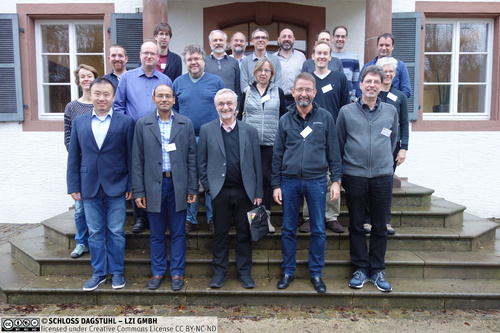
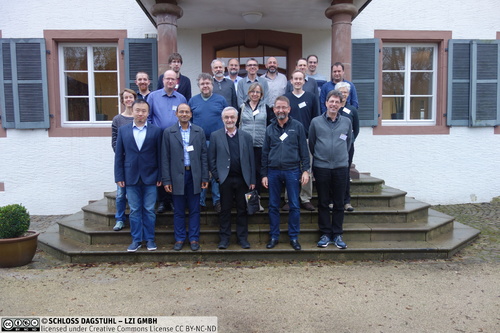
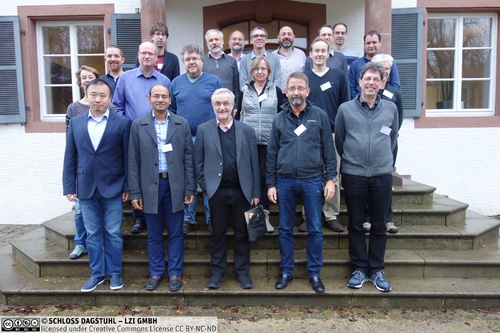
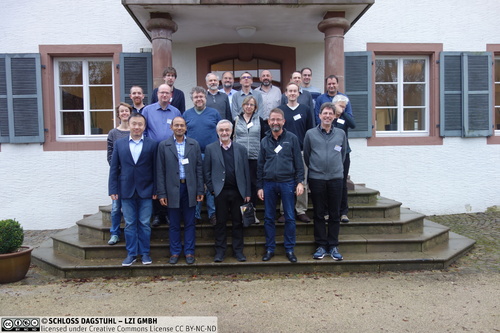
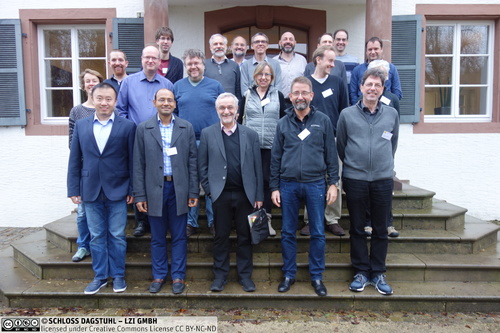
 Creative Commons BY 3.0 DE
Creative Commons BY 3.0 DE
